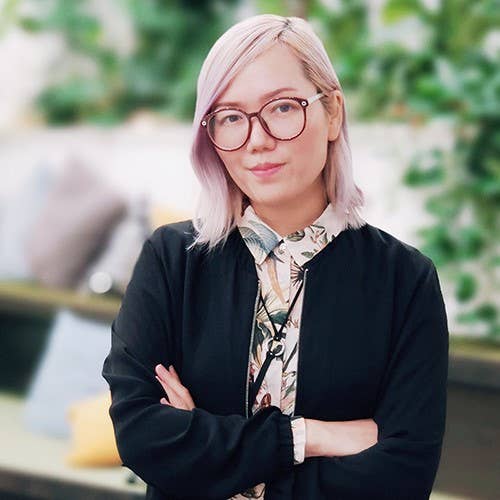Investors on the state of video games: "We are investing, but the bar is so much higher"
Experts talk candidly about the sharp downturn in video game investment, and when things might improve
It's been a perfect storm.
The global economic situation is tough, interest rates have risen, people's disposable income has taken a hit, and there has been economic damage caused by the COVID-19 pandemic. Meanwhile, the dream of globalisation has been ended with destabilisation in Eastern Europe and the Middle East.
And then in games, sales are falling, the number of launches has risen, the big live service titles are sucking up hours out of the market, there was too much venture money spent on part-funding new studios, there has been significant amounts of hiring going on, and publishers were spending huge sums on games that have not delivered.
Add all that up, and you've got the current industry crisis, resulting in game cancellations, mass redundancies and business closures.
The result of this is that investors are being significantly more cautious on what they're backing.

"This might be one of the hardest times that the game industry has known," says Eliana Oikawa, CEO of Wings, which is a fund that specialises in financing games by diverse teams.
"The conjunction of the end of the COVID bubble, the crisis, the inflation and high interest rates have led to a macro economic situation where investors and publishers are extremely cautious."
Spike Laurie, partner at VC Hiro Capital, adds: "The bar is super high right now. Before, a great game idea plus a great team used to cut it. You could walk out and get a couple of million dollars from a West Coast VC pretty easily with that. Now, it's about how are you validating this? What can you show me… have you made a trailer? And do you have a Discord community that really loves the concept? Are you using companies to play test so you can validate and get real feedback?
"There is a lot more scrutiny. There has always been scrutiny, but there is just a lot more."
Patrick O'Donnell is the video gaming analyst at Goodbody Equity Research, and specialises in the UK public sector, covering companies such as Devolver Digital, TinyBuild, Team17, Keywords and Frontier Developments. All companies who have seen a sharp downturn in share price over the past 12 months.
"It is no understatement to say 2023 was probably the toughest year for indie and AAA publishers in a very long time," he explains.
"And just given the number of top successes of blockbuster IPs and sheer proliferation of launches. Adding into that a consumer who remains squeezed given inflation, a rising number of titles on Steam – in excess of 40 titles a day – and other platforms, a marked increase in player standard/needs in new titles… there probably has never been a harder period to launch a game."
"This might be one of the hardest times that the game industry has known"
Eliana Oikawa, Wings
He says there is a lot of scepticism and caution in the UK names right now. TinyBuild has run out of liquidity, Team17 has seen a significant sell-off due to a downgrade in profit expectation, Frontier suffered two underwhelming launches, while there are challenges at Devolver and Keywords, too. Although O'Donnell says there is more confidence in the latter two businesses.
Indeed, on the VC side, Harry Hamer, who is principal at London Venture Partners, expects caution to persist throughout 2024.
"Interest rate drops will help in some regard, but many funds are still experiencing pain from down rounds and studio closures, and collective caution has become self-fulfilling as investors worry about the risk of not being able to raise further rounds," he explains. "In the absence of 'traction', a rather nebulous catch-all, investors would prefer to sit on the sidelines."
So what are the biggest things that are concerning investors right now?
"I would split this into two parts," begins Hamer. "First, whether companies are able to make it to market with their products or games. The second, their ability to break through and distribute. The fundraising market is tight at the moment, and so the more you can do with less the better. A lot of AAA devs are wishing to scratch that itch to create something new which is great, but often they are pure content plays with high budgets and little innovation outside of a slightly better game."
Laurie adds that the level of VC investment in games over the past five years does have its downsides in terms of market validation.

"In the past, publisher financing, which is the primary way games were made, was always milestone-based.There were a lot of progress checks and balances. A lot of control, almost. Publishers would be doing the work of finding out what the market is saying, what does the game need to say… all of that positioning work.
"With the venture capital model, a lot of those checks and balances fell away. So you have a lot of founders making the game that they want to make, because they're being funded to do so, but without validation that that game is going to be successful, especially in a world where discovery is a big challenge."
Competition is clearly a big issue for investors. Yet for Wings, the concern remains the disparity in how funding is distributed, with games by women being "grossly underfunded". The current climate certainly doesn't help this situation, either.
"Recent research conducted by Kim Nordstrom for his book 'Up Down Up' sheds light on the stark gender disparities present in the industry. Data from 2022 spanning circa 400 game companies that received investment and 1,000 founders, shows that a mere 11.89% of the CEOs were female, and only 8.95% of the founders identified as female," Oikawa explains.
"The impact of this funding disparity also extends to higher-risk projects, such as small indie games catering to specific or niche audiences, influencing the diversity of perspectives represented not only in the industry, but also in the games that are ultimately released."
She continues: "We wish for creators to continue to work on projects that they believe in, rather than having to adjust or fit into a solely risk-averse mindset or prescribed commercial standards. But the reality is that a lot of companies are struggling in the current crises, and projects and studios led by developers from marginalized backgrounds and regions are suffering even more from the current funding challenges.
"This systemic issue not only perpetuates inequality but also hinders innovation and creativity that arise from a more diverse range of voices. The industry needs to continue reshaping its funding structures and decision processes, for a more varied distribution of funds that better reflects the richness of diverse perspectives and experiences of creators and audience."
"Some of the layoffs have gone too far, as executives overshoot in an attempt to ameliorate the market"
Harry Hamer, LVP
Wings says it remains focused on providing funding and support for games from gender-marginalised developers. And indeed, all the investors we spoke to say they are still investing in studios and projects. However, there's a lot more scrutiny, and the companies best placed to survive the current downturn are those with an entrepreneurial approach.
"We are making investments, but like everyone else, the bar has become much higher," Laurie says. "One of the big learnings for games venture capital over the last couple of years is just because you're really good at making games in a corporate structure, that doesn't necessarily mean you have the entrepreneurial mindset. And that mindset is unique. The teams that are really going to succeeds are ones that have that 'get up and make things happen' mindset – with the discipline of the craft of making great video games. They're actually not the same thing."
Hamer again: "The best founders I’ve encountered have thought deeply about new opportunities in the market, and what unique advantages they or their startup possess to exploit it versus others.

"In this environment, those companies that remain lean and validate from users or the market early and often, are best-placed to achieve this. It gives them more chances to learn, adjust their product and find the hit they’re after. Within our portfolio we’ve seen Proxima, a small team of five people experimenting with AI gameplay, release multiple prototypes and games in quick succession, going viral with their latest game, Suck Up.
"Those who should be most concerned are those producing just another game that has marginal improvements on other comparable titles, hoping that your game will be able to pick up some organic traffic and no Plan B should the game not perform as expected. A large studio or publisher can afford to do that, a startup can’t."
Laurie says when it comes to new investments, having some form of skin in the game is important. "Ian [Livingstone, general partner at Hiro Capital] takes this to the extreme because he lived in a van for six months when he was launching Games Workshop. The expectation isn’t that you are living in a van, but… how much have you put in? What have you, as a founding team, invested in terms of time and money?
"Over the last couple of years, it has been such a soft time where they haven't had to demonstrate they have skin in the game. Now it is important to show that."
It all sounds particularly bleak, but everyone we spoke to remains bullish about the games industry's long-term future.
"Outside of VC, it’s extremely tough as the public and private equity investors, who pushed for growth only a few years ago, have switched to a focus on margins and profitability," Hamer admits.
"Some of the layoffs have gone too far, as executives overshoot in an attempt to ameliorate the markets. And yet, gaming has never been as relevant and the industry more talented, so as a VC focussed on the next decade of growth, I believe the future remains bright in spite of the current clouds overhead."
Laurie agrees: "Does it suck that we're having a correction? Sure, of course it does. But ultimately I don't believe anyone thinks we are at the peak, or anywhere near the peak.
"We still have so far to go. We've got the convergence of entertainment with games and reality, as we move forward into the 'metaverse' in inverted commas. I think it is brilliant."
"For now, people will need to focus on business essentials, which is 'Can you make more money than you can spend?'"
Spike Laurie, Hiro Capital
And Elaine Dowman, head of Games and Creative Industries at Barclays, believes we will see a rise in studios adopting new technologies and will plug the gaps that the AAA space is currently leaving open.
"I feel in the coming months we will see a rally of new indie studios with access to smarter and more powerful development tools and engines," she says. "I anticipate that these studios will create great games, which will potentially fill the gaps during the longer lead times of the AAA dev cycle, and ultimately create more diverse games for an ever-growing number of people who play."
It's hard to predict anything in games at the best of times. But considering the volatile world that we live in, and the sheer level of competition, it's difficult to estimate when things might start to recover. Indeed, only last month CEOs and industry leaders were predicting up to two years of pain for the video games business.
Our investors agree that the crisis isn't about to get resolved overnight, but remain hopeful of some positive movement from next year.
"There’s certainly hope that the situation will improve in 2025," Oikawa says. "The only thing that everyone seems to agree on is that it is not a crisis that will be resolved quickly."
O'Donnell says: "Whilst interest rates were expected to come down aggressively in 2024, that is now expected to be weighted towards the end of the year. At a market wide level, as we see some rates reductions the likelihood is equities will become a more favourable investing asset class again and fund redemptions should slow, halt. This will provide a better environment for liquidity, and should help valuation levels as inflows begin to emerge. There does appear to be light at the end of the tunnel."

Some of it is out of the industry's control, but Laurie also remains hopeful of a more optimistic 2025. In the meantime, the focus for developers should be on making sure they've got the money to see them through the year.
"I won't claim to be an economist," he concludes. "But there is obvious the macro situation… when you're paying £400 a month for your heating, that does change whether you can afford to buy a PS5 game. People really are struggling.
"So we need consumer spend to bounce back a bit. The interest rate phenomenon is affecting investors, for sure. If you can put your money in a bank and earn 5% on it, why would you look at riskier investment opportunities? The expectation is that interest rates will come down a bit, but we're still not there yet.
"The benefit of the cutting of these projects is it should filter through to fewer games, which makes for a less competitive market. But I don't think that will be too big of an impact.
"I think in 2025 we will start to see green shoots of new opportunities. Until then, people will need to focus on business essentials, which is: Can you make more money than you can spend?"

